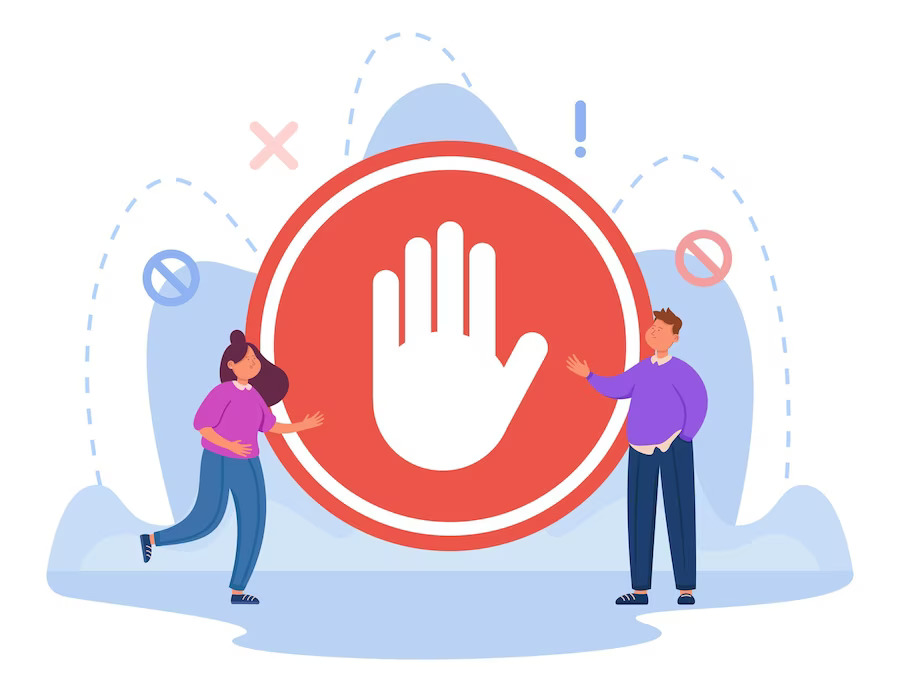Imagine investing countless hours and resources into optimizing your website. Then you find out your SEO efforts have been sabotaged by spam links. These disreputable links can harm your website’s rankings, backlink profile, prestige, and UX. Practicing SEO for your business website or as an SEO expert, it’s crucial to understand what spam backlinks are and how to identify spam links and avoid them to maintain your online presence.
This article aims to delve into the world of spammy backlinks in SEO, explore what constitutes a link, and highlight the types of spam links you should steer clear of.
According to a recent study by SEMrush, it was found that approximately 55% of websites that were penalized by Google for violating link guidelines had engaged in paid link schemes. In comparison, 30% had been penalized for having links from low-quality directories in their backlink profile.
These numbers emphasize the importance of understanding and avoiding spam links in SEO practices to ensure sustainable and effective optimization strategies. Let’s delve in!
What are Links and Spam Links Specifically?
Links, technically referred to as hyperlinks, are the clickable connections between web pages that allow users to navigate from one page to another on the internet. They are an essential element of the web that enables users to access information and resources with just a click.

Links are also a fundamental aspect in digital marketing, in the sphere of SEO particularly, as search engine spiders use them to crawl and index web pages, determine website authority, and rank pages in search results. In the sphere of SEO, there are two link types, inbound and outbound. The hyperlinks that connect internal content and the ones that connect content to external sources, respectively.
However, not all links are created equal. In the sphere of SEO, some links can be spammy and harmful, while others can be valuable and beneficial. When you understand the difference, you will avoid falling prey to spam links that can negatively impact your SEO efforts and the website’s backlink profile.
Types of Spam Links to Stay Away From
Next to the advantages of link-building, dangers, and red flags exist. You should be wary of the links that may trigger danger to the website’s optimization activities. Therefore, this article will explain the spammy links that may put you at risk—getting it started.
Paid Links
Purchasing links for the sole purpose of manipulating search engine rankings is not only unethical, but it’s also a violation of Google’s guidelines. It becomes unethical both to humans and the engine guidelines.
Paid links are often low-quality and irrelevant, with the primary aim of boosting a website’s authority artificially without providing any value to users. Search engines, especially Google, can easily detect these links.
It is no wonder that engines employ sophisticated algorithms to identify and penalize websites that engage in unethical practices. These penalties can range from a drop in rankings to being completely removed from search results, leading to a significant loss of organic traffic and potential customers.
Link Farms
Link farms are networks of websites that are created solely to interlink with each other. It comes without any valuable content provided to users. They are often created to manipulate search engine rankings and build artificial backlinks. This method is referred to in SEO as the black hat technique.
Search engines widely recognize link farms as spammy, and websites that engage in such practices can face severe penalties, including loss of rankings, decreased visibility, and even being deindexed from search results, leading to a significant negative impact on organic traffic and online visibility.
Low-Quality Directory Links
While reputable directories can provide value, low-quality directories with little relevance or importance to users can be considered spammy.
These directories often contain numerous unrelated and low-quality links, making them easy targets for search engine penalties, and can potentially harm the website’s SEO efforts rather than benefit them.
It’s crucial to exercise caution and carefully evaluate the quality and relevance of directories before submitting your website to them.
Comment Spam
Comment spam refers to leaving irrelevant and low-quality comments on blogs, forums, or other websites solely to include a link back to your website. Search engines are “wise” enough to easily detect comment spam. This can also lead to penalties, as it is considered a manipulative tactic to gain backlinks, and can also harm the reputation and credibility of the website associated with such spammy comments.
Hidden Links
Concealing links to manipulate engines. Hidden links are disguised or hidden from users but still present in the website’s code. They are often used to manipulate search engines by creating links that are not visible to users but are intended solely for search engines to crawl.
Yet, technologies have been developing at a great speed. Search engines, in turn, have become increasingly sophisticated in detecting hidden links. Websites caught using such deceptive tactics can face severe penalties, including loss of rankings or being removed from search results altogether, as it violates search engine guidelines and is listed as spammy behavior.
It’s essential to avoid using hidden links and focus on building high-quality, relevant, and visible links that provide value to users and comply with search engine guidelines.
How to Avoid

- Focus on Quality Content: Creating high-quality, valuable, and shareable content is one of the most effective ways to attract authoritative links naturally. When you provide value to users through your content, other websites are more likely to link to your content organically, without the need for paid links.
- Earn Links through Outreach: Instead of buying links, invest in outreach efforts to connect with reputable websites in your niche or industry. Build genuine relationships, offer valuable insights or contributions, and earn links for your backlink profile through legitimate means, such as guest posting or collaborative content.
- Conduct Link Audits: Regularly audit your backlink profile, learn how to identify spam links. Use tools like Google Search Console, Moz, or SEMrush to analyze your backlinks and identify any potentially harmful links. Knowing how to identify spam links, If you find any suspicious links, take immediate action to disavow them and request their removal.
- Be Cautious of Link-Building Services: Agencies may promise quick and easy link-building solutions. Avoid purchasing links or engaging in link schemes against search engine guidelines, as they can result in severe penalties and harm your website’s SEO efforts.
- Use Reputable Directories: If you submit your website to directories, opt for reputable and authoritative guides that provide value to users and have strict editorial guidelines. Avoid low-quality directories that are filled with irrelevant or spammy links.
- Monitor and Stay Updated: Stay updated with the latest SEO news and updates, primarily related to link building and spammy link practices. Regularly monitor your backlinks, stay informed about changes in search engine algorithms, and ensure that your SEO practices align with search engine guidelines.
Conclusion
In the sphere of SEO, not all links are created equal. Spam links can harm your website’s SEO efforts and reputation, leading to penalties, loss of rankings, and even removal from search results. It is crucial to know how to identify spam links, avoiding paid links, link farms, low-quality directory links, and comment spam.
Instead, focus on building high-quality, relevant, and natural links that provide value to users and adhere to search engine guidelines. Remember, a strong and authoritative backlink profile is built on quality, not quantity. So, be vigilant and steer clear of spam links to safeguard your website’s SEO success.





